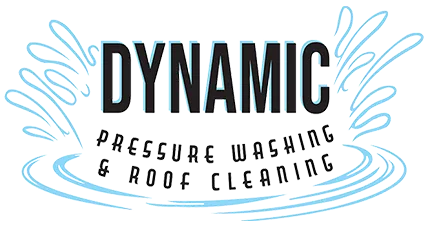Frequently asked questions
General Pressure Washing Questions
Q: What is the best way to clean the exterior of my home?
A: The best method depends on the material. Pressure washing is great for concrete while soft washing is ideal for siding, brick and roofs.
Q: How often should I pressure wash my house?
A: Most homes benefit from annual washing, but high humidity areas may require more frequent cleanings.
Q: What’s the safest way to clean my roof?
A: Soft washing is the safest method. It uses low-pressure water and cleaning solutions to remove algae and dirt without damaging shingles.
Q: Can pressure washing damage my home’s siding or paint?
A: High-pressure washing can cause damage if not done correctly. Soft washing is recommended for painted surfaces and delicate materials.
Q: What’s the best way to remove mold and mildew from a house?
A: Soft washing with specialized cleaning solutions effectively removes mold and mildew without harming surfaces.
Driveways, Decks, and Patios
Q: How do I remove oil stains from my driveway?
A: Professional pressure washing with degreasers and hot water is the most effective method.
Q: What’s the best way to clean a wood deck?
A: Soft washing or low-pressure power washing with a wood-friendly cleaner is recommended to avoid splintering.
Q: Can pressure washing restore my old patio?
A: Yes! Pressure washing removes dirt, grime, and stains, making patios look new again.
Q: Is it safe to pressure wash pavers and stone walkways?
A: Yes, but it should be done with controlled pressure to prevent damage to grout and joint sand.
Q: How can I prevent my driveway from getting dirty so quickly?
A: Applying a sealant after pressure washing helps protect the surface from dirt and stains.
Commercial & Fleet Cleaning
Q: What’s the best way to clean a commercial building exterior?
A: Soft washing or pressure washing, depending on the building material, is best for removing dirt and grime.
Q: Can pressure washing remove graffiti from walls?
A: Yes, with the right chemicals and pressure settings, graffiti can be effectively removed.
Q: How often should a business get its parking lot cleaned?
A: Monthly or quarterly cleanings help maintain a professional appearance and prevent buildup of dirt and oil stains.
Q: Do fleet washing services use special detergents?
A: Yes, eco-friendly degreasers and detergents are used to safely clean trucks and heavy equipment.
Q: What’s the best way to clean heavy equipment and machinery?
A: High-pressure washing with hot water and degreasers effectively removes dirt, grease, and buildup.
Windows, Fences, and Additional Services
Q: What’s the safest way to clean exterior windows?
A: Soft washing or a purified water-fed pole system prevents streaking and damage to glass.
Q: Can pressure washing remove rust stains?
A: Yes, special rust removers combined with pressure washing can effectively eliminate most rust stains from concrete and other surfaces.
Q: How do I clean my vinyl fence without damaging it?
A: Soft washing is the safest method for vinyl fences, using low pressure and cleaning solutions.
Q: Can pressure washing remove old paint?
A: Yes, but it depends on the surface. Pressure washing can help prep surfaces for repainting.
Q: What’s the best way to clean outdoor furniture?
A: Soft washing or low-pressure washing with mild detergents is recommended for most materials.
Scheduling, Pricing, and Service Details
Q: How much does pressure washing cost?
A: Costs vary based on the size and complexity of the job. Most homes range from $200-$600.
Q: How long does a typical pressure washing service take?
A: Most residential jobs take 1-3 hours, while larger commercial projects may take longer.
Q: What should I do to prepare for a pressure washing service?
A: Remove any fragile items from the area, close windows, and keep pets indoors.
Q: How can I schedule a pressure washing service?
A: You can schedule by calling, filling out an online contact form, or sending a message through our website.
